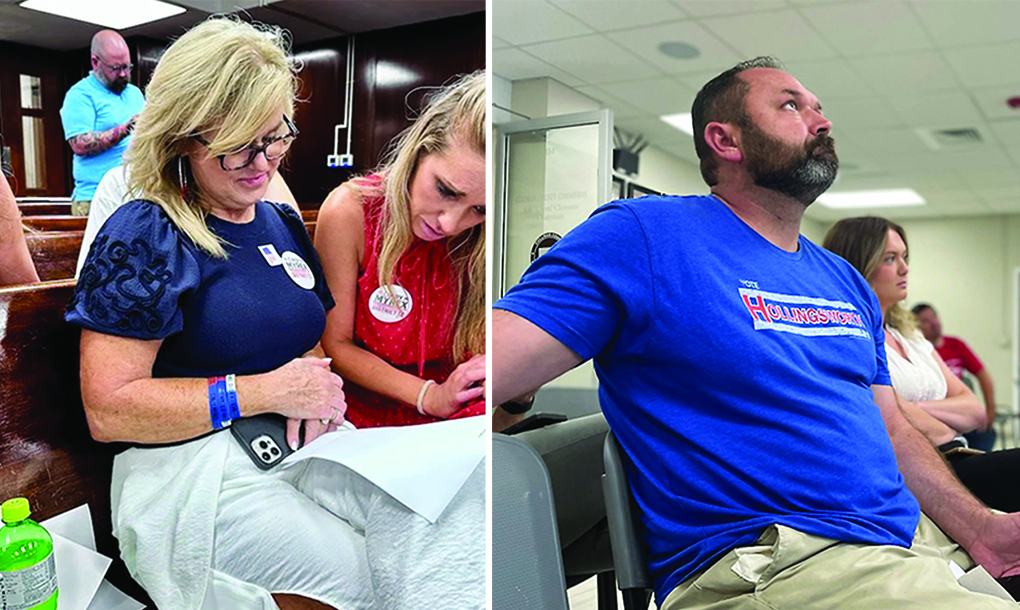Seeking coverage: Local parents say autism bill needed
Published 5:45 am Sunday, May 14, 2017

- With time running out on the 2017 legislative calendar, local parents of autistic children are optimistic about a contentious Senate bill that would compel Alabama insurers to cover at least one form of autism therapy.
With time running out on the 2017 legislative calendar, local parents of autistic children are optimistic about a contentious Senate bill that would compel Alabama insurers to cover at least one form of autism therapy.
The Alabama Senate will vote this week on a mandate for insurers to offer coverage for intensive applied behavioral analysis (ABA) therapy, Senate President Pro Tem Del Marsh (R-Anniston) has pledged.
Trending
“We will have all day Wednesday to have debate on that bill,” Marsh said last week. “Our intent is to get an autism bill to the governor.”
The bill would require some insurers to cover ABA therapy, an intensive treatment that can cost $100 per hour — out of financial reach for many families. Business and insurance groups have voiced opposition to the proposed mandate, citing cost concerns.
“It all comes down to money,” said Cullman resident Sarah Bates, pausing Saturday from activities at a local autism support group outing at Sportsman Lake Park. “For the insurers, it’s just one more thing to have to pay for, and they don’t want to do that.”
Bates’ nine year-old daughter, Ella, has received both ABA and occupational therapy for autism. Ella’s current occupational therapy sessions with a local professional have been “wonderful,” said Bates, and she’s happy to pay the out-of-pocket cost.
But the present bill, she said, is limited in its scope, and likely will exclude a lot of Alabama patients who’ve received a valid diagnosis.
“Alabama is one of only a few states that has not already passed a law like this,” she said. “We do need it, and we’ve needed it for a long time. But what I’m concerned about is that they’re adding in so many conditions — like an age limit that cuts it off after a child turns 16 — that it won’t have the kind of effect it should.
Trending
“Autism is something you live with your whole life, and for therapy to be effective, it has to be ongoing. You don’t ‘cure’ autism; you live with it. These are people who, as adults, will need therapy, and [would] really benefit from it, for the rest of their lives.”
Penny Brock’s 22 year-old daughter, Stormi, received therapy through the Cullman City School system, and wouldn’t have been covered under the current proposal. But, like many other parents of autistic children, Brock said she hopes the Senate does approve the therapy bill this week.
“I can’t say enough good things about the way the city [schools] worked with us,” she said. “But we really have been fortunate to be somewhere where we had [access to] it. Right now, even if you have a diagnosis, you’re going to have to pay for any outside therapy yourself. They [insurers] will tell you that autism doesn’t qualify for coverage. We want it to pass.”
Concerns over expanded costs have made the bill a point of controversy among lawmakers.
Hostilities erupted among senators last Wednesday, shortly after the Senate budget committee approved the bill on a 14-2 vote. Committee Chairman Sen. Trip Pittman (R-Montrose) — who says he’s worried about costs to Medicaid and other state insurance programs — said afterward that he might hold the bill in committee by not reporting it to the floor in order to negotiate for changes.
After pushback from other lawmakers, he relented, but criticized the idea of mandating new, yet-to-be-tallied expenses.
“At the end of the day, we have to be able to pay for the costs of this, and there are a lot of unknown costs,” he said.
Parents of children on the autism spectrum applauded after the committee approved the bill Wednesday, but said they fear it could die in the remaining few days in the legislative session.
“We want a vote on the bill. We’ve waited long enough,” said Rachel Robinson of Fairhope.
Robinson drives to Florida each week so her 6 year-old son can attend ABA therapy. She said she credits “98 percent” of her son’s progress to ABA.
“It means he can go to a typical kindergarten class. He can make friends. He can interact with children and adults,” she said.
The Associated Press contributed to this report.





